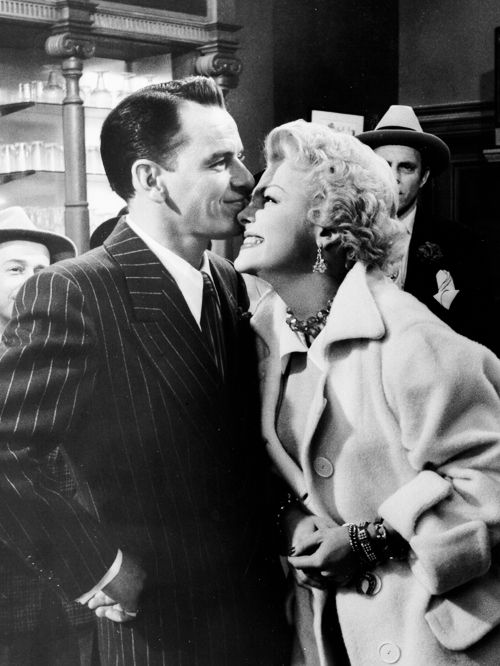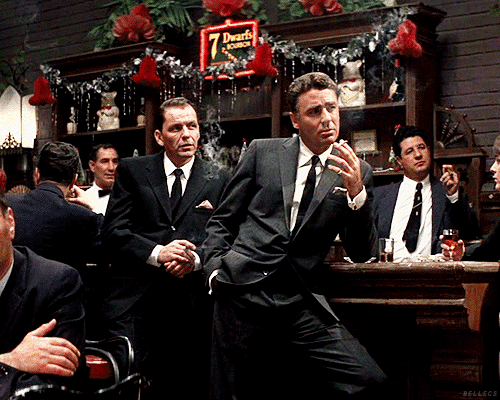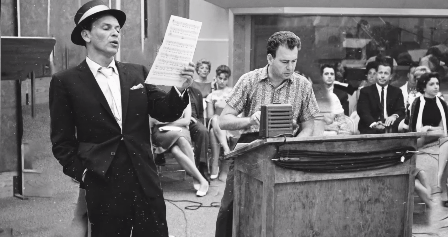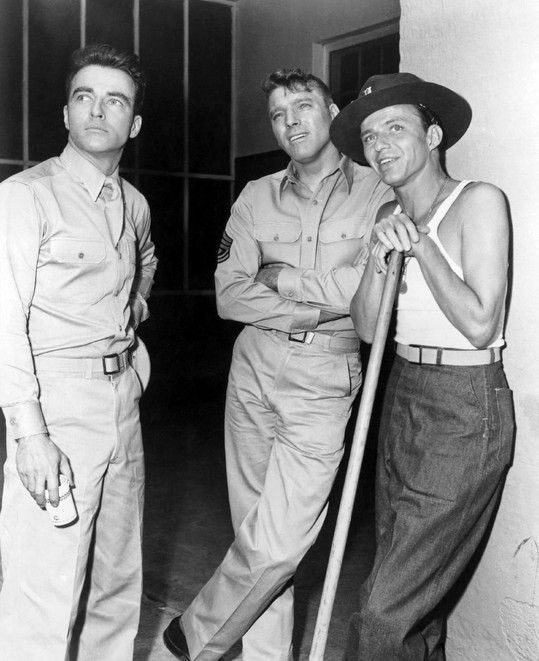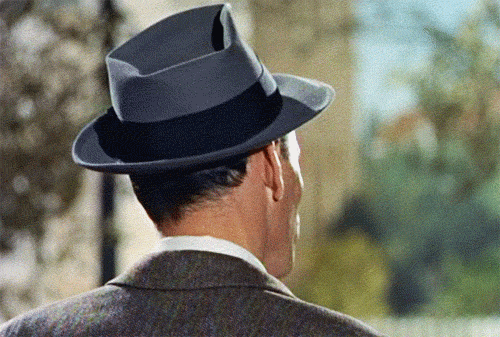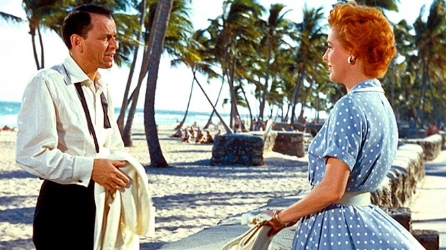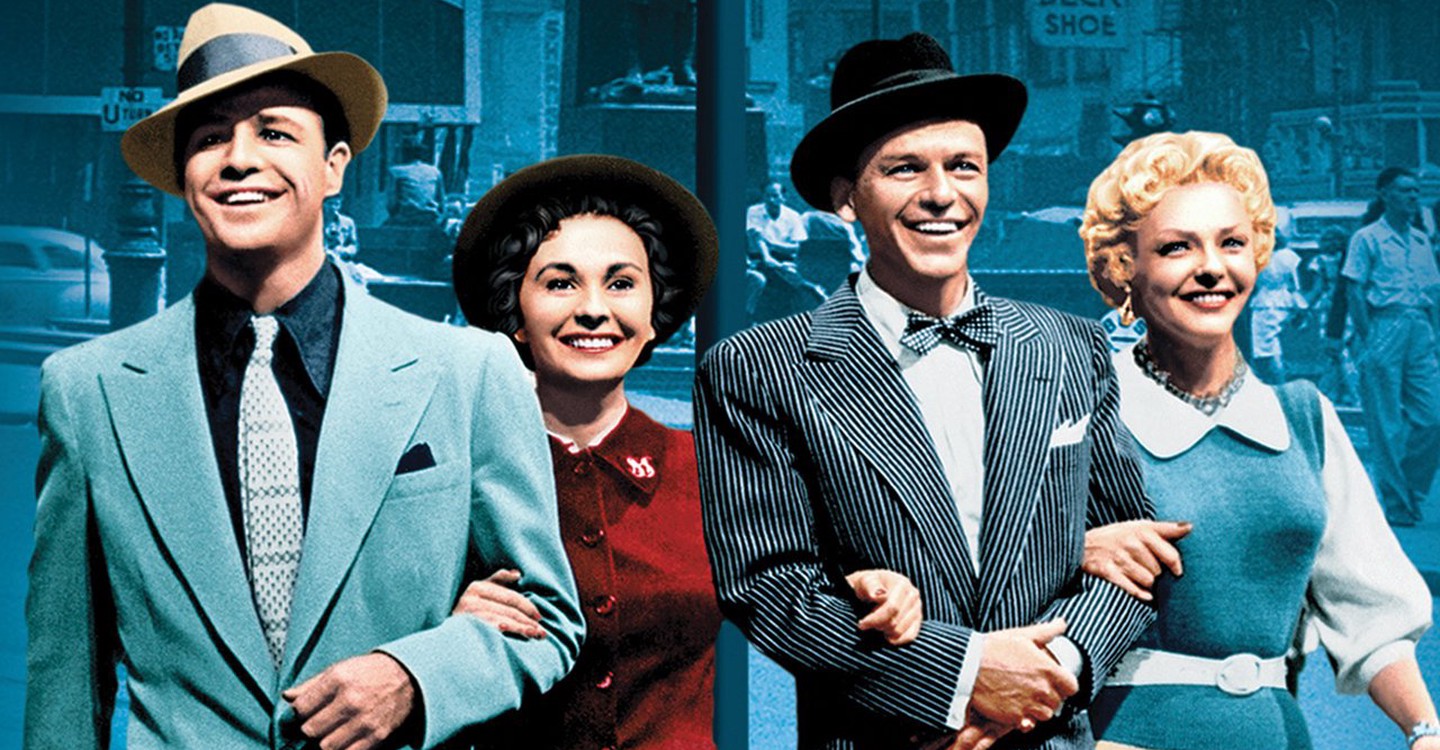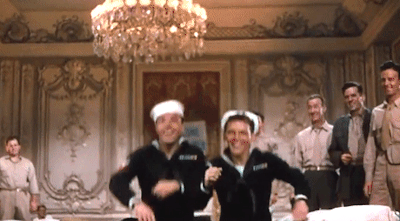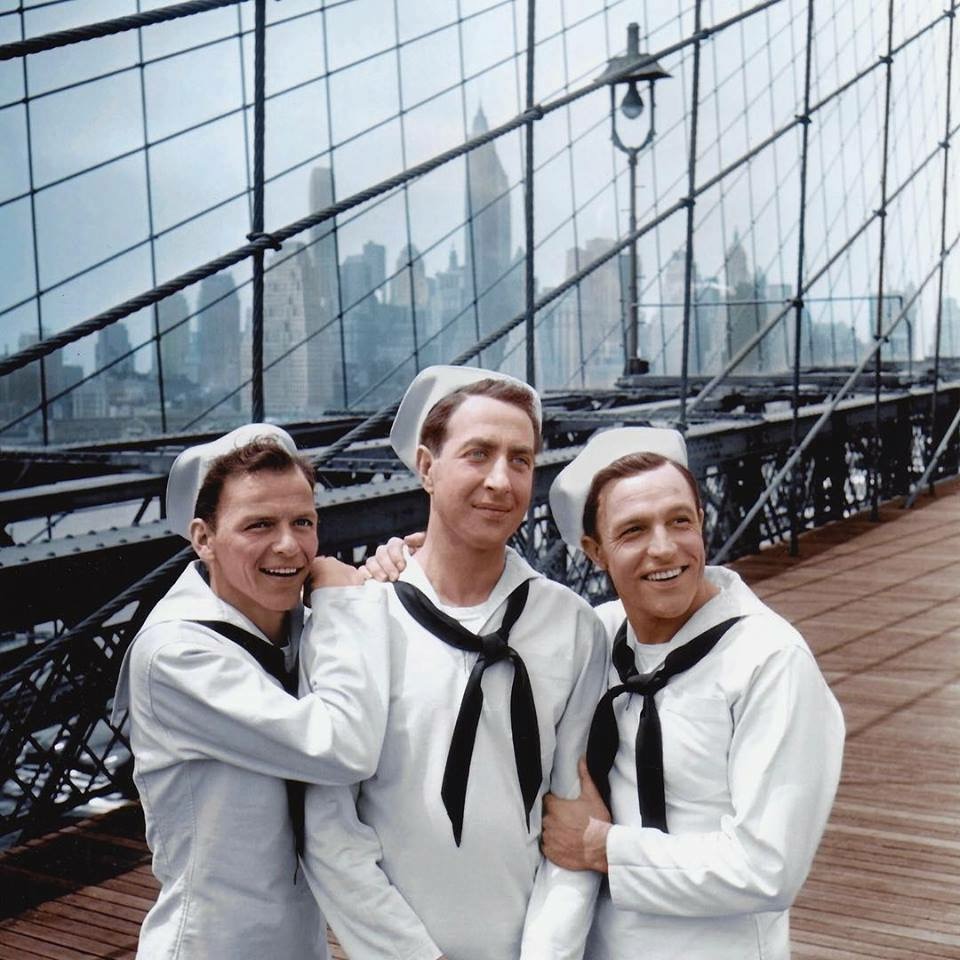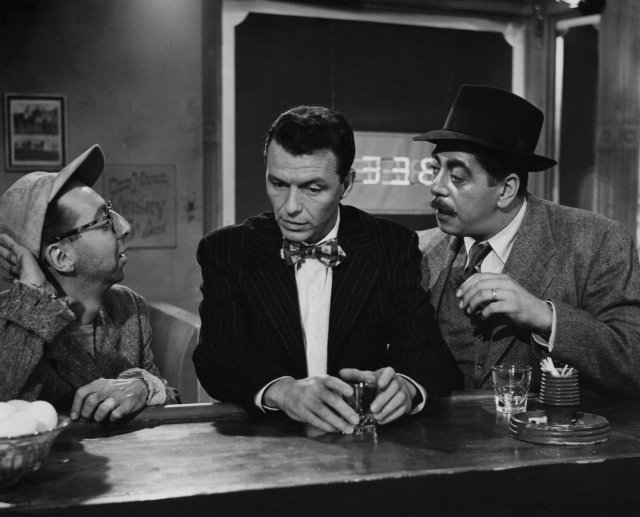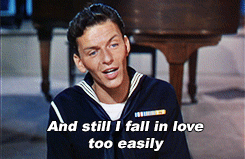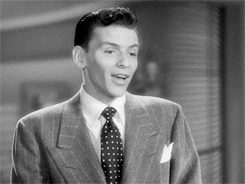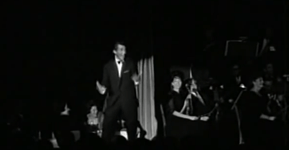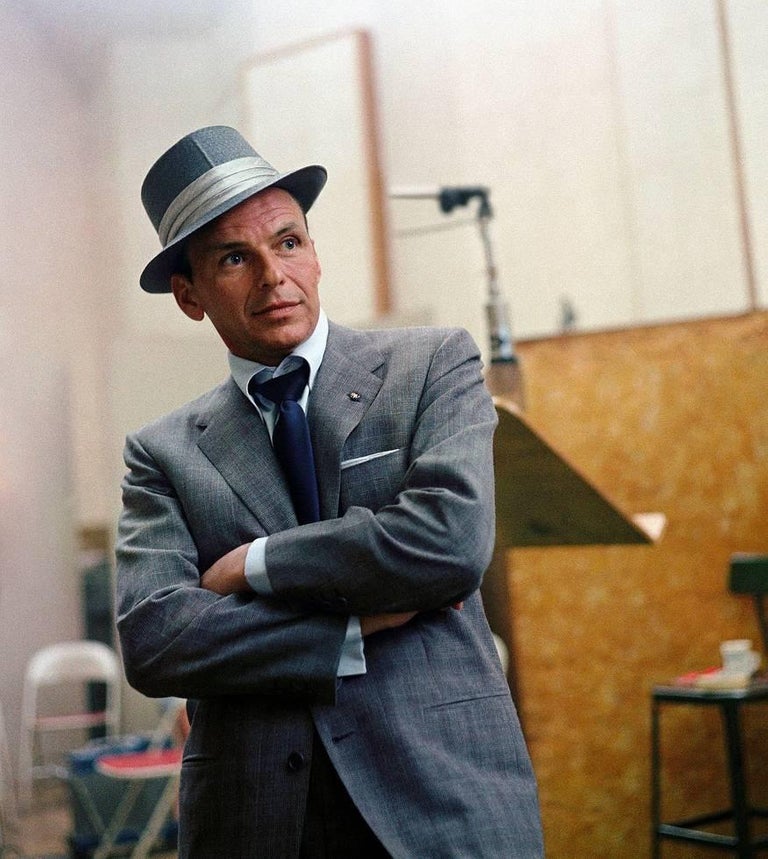Frank Sinatra

Sinatra. A consummate professional and perfectionist in all aspects of his career. His work as an actor was no exception. Although he may have been known as “The Voice,” Sinatra’s abilities as an actor should not go unnoticed. He had what David Thomson called a kind of "scrawny soulfulness" during the early part of his film career, in such light comedy musicals as Step Lively (1944), Anchors Aweigh (1945), It Happened in Brooklyn (1946), and the classic On the Town (1949).*
Sinatra's career took a turn, though, when personal family issues were taking place in the public eye. Sinatra found himself without any film prospects and with a floundering singing career. That changed with his turn as Private Angelo Maggio in From Here to Eternity (1953). The performance garnered him an Oscar. Maggio was lovable and comic, but bold and tragic, too. With his career re-emerging, Sinatra took more artistic chances, which would define a new era of his musical and acting career. The rest of his films would continue to unveil his acting talent and versatility. As an actor, Sinatra was showing a different side of himself. Some of the following films would demonstrate a kind of "off-hand glamor" that so well suited Sinatra's personality and abilities – never sacrificing those abilities nor himself – in films, like Young at Heart (1954), Tender Trap (1955), Guys and Dolls (1955), High Society (1956), and Pal Joey (1957).*
This is only a small portion of the range Sinatra revealed in the '50s. In films like Suddenly (1954) and The Man With the Golden Arm (1956) the singing idol was convincing as a psychopath and an addict, respectively. And in perhaps his most exposed performance as a soldier confronting vulnerabilities hidden under a tough-guy façade, he triumphed in Some Came Running (1958).
In the '60s Sinatra had less interest in movies, with his films mainly consisting of fun projects with the legendary "Rat Pack," most memorably realized in the big ensemble film Ocean's 11 (1960). He did have other later success without his signature group of friends with films, like The Manchurian Candidate (1962) and Von Ryan's Express (1965). Beyond this, Sinatra focused on his performing life and recordings.
Yes, more than a singer and more than a good actor David Thomson succinctly describes Sinatra's pervasive influence on American acting: “he glamorized the fatalistic outsider; he made his own anger intriguing; and in the late fifties, especially, he was one of our darkest male icons." As a singer, he strived for and was noted for making sure that he meant what he was singing. He was never separated from as song’s stirring lyrics or his electrifying performances. The same goes for the screen.
*Thomson, David. The New Biographical Dictionary of Film. Third Edition. New York: Knopf, 2002.
Core Films
*= my personal favorites
On the Town (1949)*
From Here to Eternity (1953)*
The Man with the Golden Arm (1955)*
Pal Joey (1957)
Some Came Running (1958)*
Ocean’s 11 (1960)*
The Manchurian Candidate (1962)
Von Ryan’s Express (1965)*

